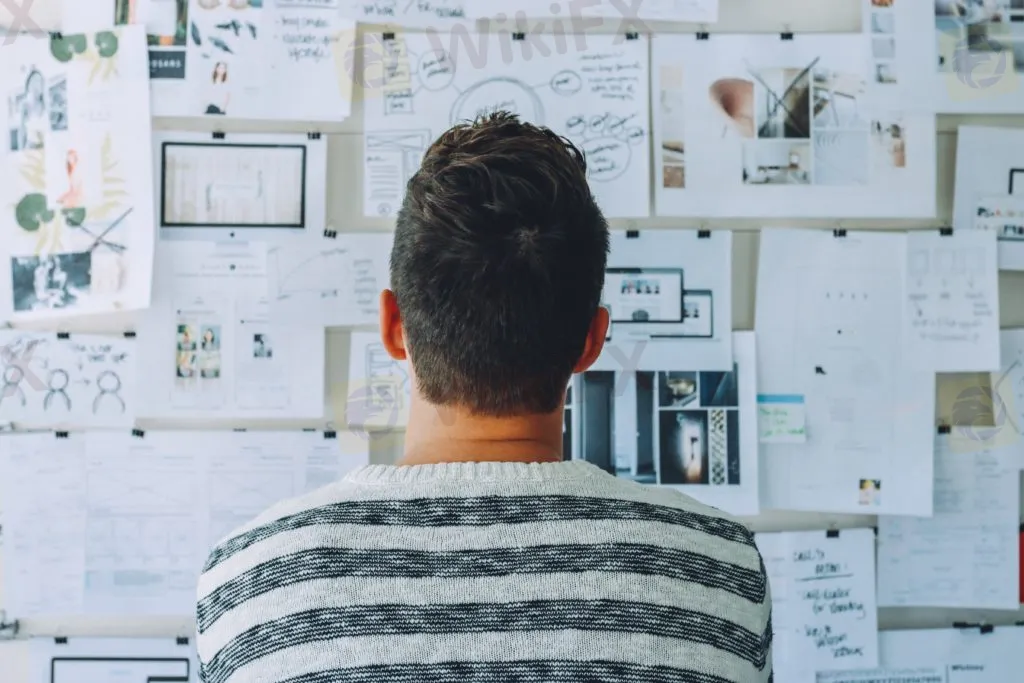简体中文
繁體中文
English
Pусский
日本語
ภาษาไทย
Tiếng Việt
Bahasa Indonesia
Español
हिन्दी
Filippiiniläinen
Français
Deutsch
Português
Türkçe
한국어
العربية
YOUR FOREX TRADING STARTER KIT
Abstract:There are lots of people out there who have the education and probably have read topics on forex and what it’s all about but don’t really know how to get started with forex trading.
There are lots of people out there who have the education and probably have read topics on forex and what it‘s all about but don’t really know how to get started with forex trading. So, thats going to be the focus of this article or Trading Starter Kit, as I would like to call it. Here, I have highlighted five key points you need to get acquainted with if you want to start trading forex.
Lets get started!
#1 Basic understanding of what Forex trading is all about.

You need to have a basic understanding of when to buy, when to sell, what the terms mean like take profit targets, stop loss levels, and why markets are moving in the first place.
Now, there are numerous books and sources of education out there. However, when looking out for education sources, you need to;
Avoid people who begin by telling you how much money you can make as a forex trader; how you can give up your day job and how you‘re never going to work again and still make a lot of money. That’s not the type of education that you want as a starter.
Get yourself good training by a recognized author of a good book. There are lots of good books out there. You can make your research and analysis of the reviews on those books. You may also want to take some online courses. There are some good courses online.
However, reading books and taking online courses alone does have some limitations. It is not possible to know it all just by reading or watching online videos. Once you‘ve gotten some education, the next thing is to join a community of like-minded traders. Here, you’ll find people who have done it, who are doing it and are willing to help you along the way. Theres nothing more powerful than being able to share your views and asks questions to other members of like-minded traders. Surround yourself with people you want to be like and learn from them.
#2 Develop a Strategy:
After you‘ve acquired the basic education and a good understanding of the terminologies, the next thing is to get a strategy. A strategy is a series of rules of engagement; when you should buy; when you should to sell, and how you’re going to manage the trades. At this point, you need to understand the K.I.S.S – which means Keep It Simple Stupid. When you get going in this business for the first time, you need to keep your strategy very simple. You dont need all the technical analysis you see out there. Once you acquire some basic education, you have more confidence in developing a strategy.

Moreover, you need to understand that a strategy is never going to be flawless. Every strategy would have a losing streak, and it‘s important you learn how to deal with it. Appreciating that your strategy has a losing streak and knowing what has been done in the past will help you when trading with live money. Most importantly, you need to backtest a strategy. By doing so, you’re sure to boost your confidence. You can carry out a backtest on demo accounts. Make sure you stick to the rules of a strategy.
Lets look at the next point.
#3 You need a broker:
A broker is a middleman that will execute the trades on your behalf in the market. Now, there are multiple brokers out there looking out for your business. However, when looking out for a broker, there are essential things you need to look out for;
Extreme leverage. Avoid those brokers that will offer you extreme leverage that is, a huge percentage profit for your capital. These brokers understand that such huge profit margin excites you. They also know that it is highly unlikely that you‘re going to make such profit. You lose your money, and that’s theirs to keep.
Commissions charged by brokers: Some brokers charge extreme amounts of commissions.
Spread: this is the difference between ASK and BID. It is the difference between the buying price and the selling price. A good broker will have a tight spread which means that the actual cost of trading will be less.
Also, you should choose a broker that is regulated by certain jurisdiction depending on the location.
Good customer service: Also make sure that the customer service is good. You should be able to relate well with your broker and get answers to your questions when you need them. The speed of deposit and withdrawal is very important. A good broker will assist you in getting your money out when you have to.
Start trading with a demo account: once you‘re good to try out your knowledge, start trading with a demo account. Of course, you won’t want to risk your hard earned cash on real trading. Remember youre still learning the process and trading is no get-rich-quick kind of business.
You need to be patient. Spend time on your screen looking at how prices move, looking at your strategy and how it plays out. One problem with trading on a demo account is that people lose interest very quickly. But, you need to take it seriously if youre out and want to prepare for the real trading.

I often encourage people to adopt 25 trade challenge. Here, you first write down your rules of engagement; when you‘re going to buy, when to sell, when to take profit, when you’re going to get stopped out and how you‘re going to risk-manage. Then trade this strategy for 25 times without fail. Of course, you’re going to have winning and losing trades. The purpose of this 25 trade challenge is not all about testing the strategy, but it tests your psychic and your emotional side of the trading. Most traders fail because they cant follow their own rules.
#4 Start with low leverage:
As a beginner, you should go for no more than 5, 10, to 1 leverage so that you can get the experience and the actual feeling of making a winning trade and a losing trade and not looking at the money youve made so far. The idea is to make sure that you know how to trade before taking unnecessarily high risks.
#5 Have a written plan:

Everything you do has to be around a plan. When you start trading real money, you need to have a plan written down. Part of that plan is keeping a journal of all your trades. It could be written manually on a piece of paper.
Losing trade which happens to all of us is not money wasted. It should serve for education purposes. You need to understand why that trading lost. You might be able to see a trait in your losing trades and learn from it. You need to learn to appreciate your losing trades as part of the natural trading process.
For those who still struggle with the challenge of getting started even after getting some education, go through these five key points. They will guide you on how to get started with forex trading. It worked perfectly for my sister, and Im sure it will do the same for you.
Disclaimer:
The views in this article only represent the author's personal views, and do not constitute investment advice on this platform. This platform does not guarantee the accuracy, completeness and timeliness of the information in the article, and will not be liable for any loss caused by the use of or reliance on the information in the article.
Read more

Forex Trading: What is Forex? FX Trading Explained
Forex trading is a term used to describe individuals that are engaged in the active exchange of foreign currencies, often for the purpose of financial benefit or gain.

Forex Trading
What is Forex? FX Trading Explained

WikiFX TOPIC: Forex Trading Truth or Lie?
Uncovering the Truths of FX Trading.
WikiFX Broker
Latest News
High-Potential Investments: Top 10 Stocks to Watch in 2025
US Dollar Insights: Key FX Trends You Need to Know
Why Is Nvidia Making Headlines Everywhere Today?
Discover How Your Trading Personality Shapes Success
FINRA Charges UBS $1.1 Million for a Decade of False Trade Confirmations
Bitcoin in 2025: The Opportunities and Challenges Ahead
BI Apprehends Japanese Scam Leader in Manila
Big News! UK 30-Year Bond Yields Soar to 25-Year High!
SQUARED FINANCIAL: Your Friend or Foe?
Join the Event & Level Up Your Forex Journey
Currency Calculator






